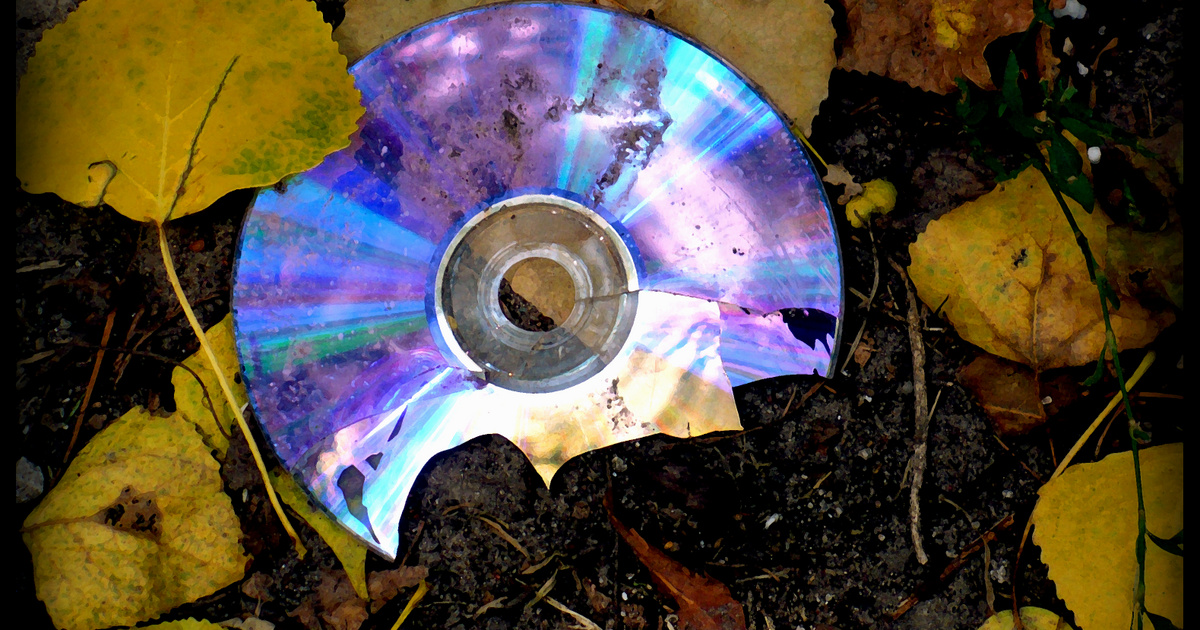We save and store our digital content and digitally created files on computer storage devices, but this is a double-edged sword. The same digital data can be replicated indefinitely without any loss of copy, that is, it can theoretically last forever. However, digital storage on physical media can become damaged due to its physicality, and this failure may render the data inaccessible. In other words, data must be copied to a new data medium at certain intervals, before the data medium storing our data fails, so that we do not lose our data.
Pen drives can be a solution, but they are unreliable due to their storage technology, and copied data must be scanned relatively frequently and saved to a new drive.
The most common backup format – and by far the most reliable – is the very popular optical data carrier, the writable CD. The emergence of CD-R (CD-R) dates back to 1988, in collaboration between Philips and Sony. Since then, we have truly entered the era in which even recordable CDs are showing signs of decline.
One of the most alarming failures of recordable CDs is called “disc rot” and can be traced to a manufacturing defect in the data storage surface of the CD. For this reason, discs can fail in as little as ten years, undermining their reputation for reliability.
The hidden phenomenon that destroys CDs
The technological basis of the rot problem is that optical media manufacturers use a range of different chemicals and manufacturing processes. While the data storage and basic manufacturing of disks is standardized, the details of their production are not. Different brands have different aging characteristics, and with some failures occurring in less than ten years, the sensitivity of recordable discs has been revealed. These errors seem to be very common.
To sum up, it can also be generally said that recordable CDs begin to deteriorate in significant numbers within 20 years on average, and this does not only affect discs that are susceptible to rotting.
To make matters worse, the lifespan of recordable CDs is completely unpredictable.
Therefore, in the very long term, this data carrier should not be used to archive our data either. However, before we describe a recordable CD, it should be noted that, depending on the manufacturer and technology, many CDs can have a very long life. The problem is the unreliability of the technology as a whole.
There are two main lessons to be learned about recordable discs:
- The first is to copy and repeat vital information at regular intervals.
- The other, and perhaps more important, thing is to store CDs in the right conditions.
According to experts, the storage life of CDs can be increased up to 25 times if storage conditions are appropriate. It is useful to store records at a temperature of 5 degrees Celsius and a relative humidity of 30 percent, i.e. it seems that it may be recommended to keep our most important records in the refrigerator. Hence, CDs produced now could be worth as much as the 27th century.
Endless copies
Anyone using recordable CDs for backup should take the storage issue seriously, as several studies show that the recordable CDs we bought with optical drives in the 1990s are more likely to fail.
There are many other problems with CDs, including scratching and corrosion. Therefore, we can never escape the constraints of our physical reality, and disks must be stored properly and copied to a new disk or other more reliable data carrier at regular intervals.
Of course, there are reliable and long-term solutions, but they are out of reach of the average person due to their high costs. So what is the solution? If money is no object, turn to tape drives.












































